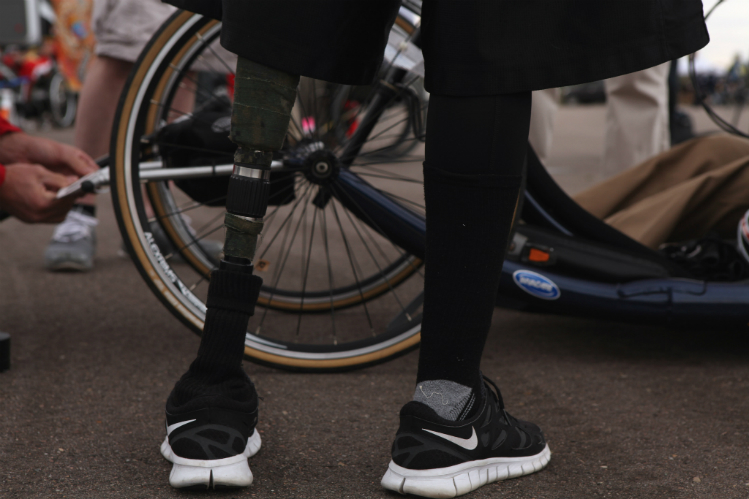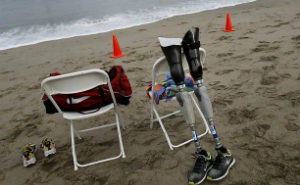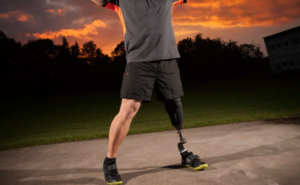As someone with diabetes, you likely understand how important it is to prevent diabetic amputation risk factors from becoming your reality. Are you doing everything you can to stay healthy?
Foot-related diabetes issues can quickly worsen and lead to serious complications or even amputation. Because diabetes is the leading cause of lower extremity amputations due to issues like nerve damage, peripheral arterial disease (PAD), foot ulcers, and infections, your health hinges on having a solid understanding of common diabetic amputation risk factors and how to prevent them.
Diabetic Amputation Risk Factors
Since November is Diabetes Month, it is a good time to re-educate yourself on more proactive ways to manage your diabetes and the health complications it can cause. The following are five common amputation risk factors for diabetics. Make sure you are actively working to prevent these problems by managing your diabetes the right way.
1. Nerve Damage
The possibility of developing of nerve damage, or neuropathy, is one that you need to discuss with your physician. If your blood sugar levels rise and stay too high for too long, you risk damaging the nerves or blood vessels in your feet. This damage often results in loss of physical sensation. Therefore, if you have nerve damage, you might not feel any sensations if you get a cut, sore, blister, or injury that could eventually lead to infection. Wearing custom orthotic shoes can help prevent problems with your feet.
2. Infections
As a diabetic patient, you are prone to developing lower limb infections due to nerve damage, foot injuries, and poor circulation. Your vigilance in protecting your feet, as well as searching for therapeutic wound healing treatments, can help you stave off infections.
3. Chronic Foot Ulcers
The three main types of lower extremity ulcers are venous status ulcers, arterial (or ischemic) ulcers, and neurotrophic ulcers (also referred to as diabetic ulcers.) Due to loss of feeling caused by neuropathy, you might easily miss some indications of chronic foot ulcers. These ulcers can be indicated by an itching and burning sensation, so you need to make inspecting your feet a daily routine. Look for a rash, scaly or dry skin, redness, and discoloration to detect chronic foot ulcers.
4. Poor Blood Sugar Management
Once you become diagnosed with diabetes, you need to become diligent about monitoring your blood sugar and insulin levels to protect your feet. A high level of blood sugar prevents white blood cells from working properly as a defense against bacteria, leaving any wounds, particularly foot ulcers, exposed to potential infection. Chronic infection or ulcers can compromise the function of your feet and potentially lead to amputation.
5. Smoking
Smoking is an unhealthy habit whether or not you have diabetes, but diabetics are particularly at risk for additional health complications while smoking. Smoking directly affects circulation and blood flow throughout the body, which is crucial in your feet.
Do not forget than another major diabetic amputation risk factor is amputation itself; if you continue to monitor your diabetes poorly after a lower limb amputation, you risk amputation of your other leg. Talk to your physician about ways to be more healthy and consult your Arkansas prosthetist to make sure your prosthetic leg helps decrease your pain and increase your strength.
If you have questions about your prosthetic legs, contact Horton’s Orthotics & Prosthetics at 501-683-8889. You can also talk to us about our orthotic footwear options that can help prevent foot complications often associated with diabetes.
[maxbutton name=”Download Prosthetics 101″]
Image licensed by DVIDSHUB on Flickr




Leave a Reply